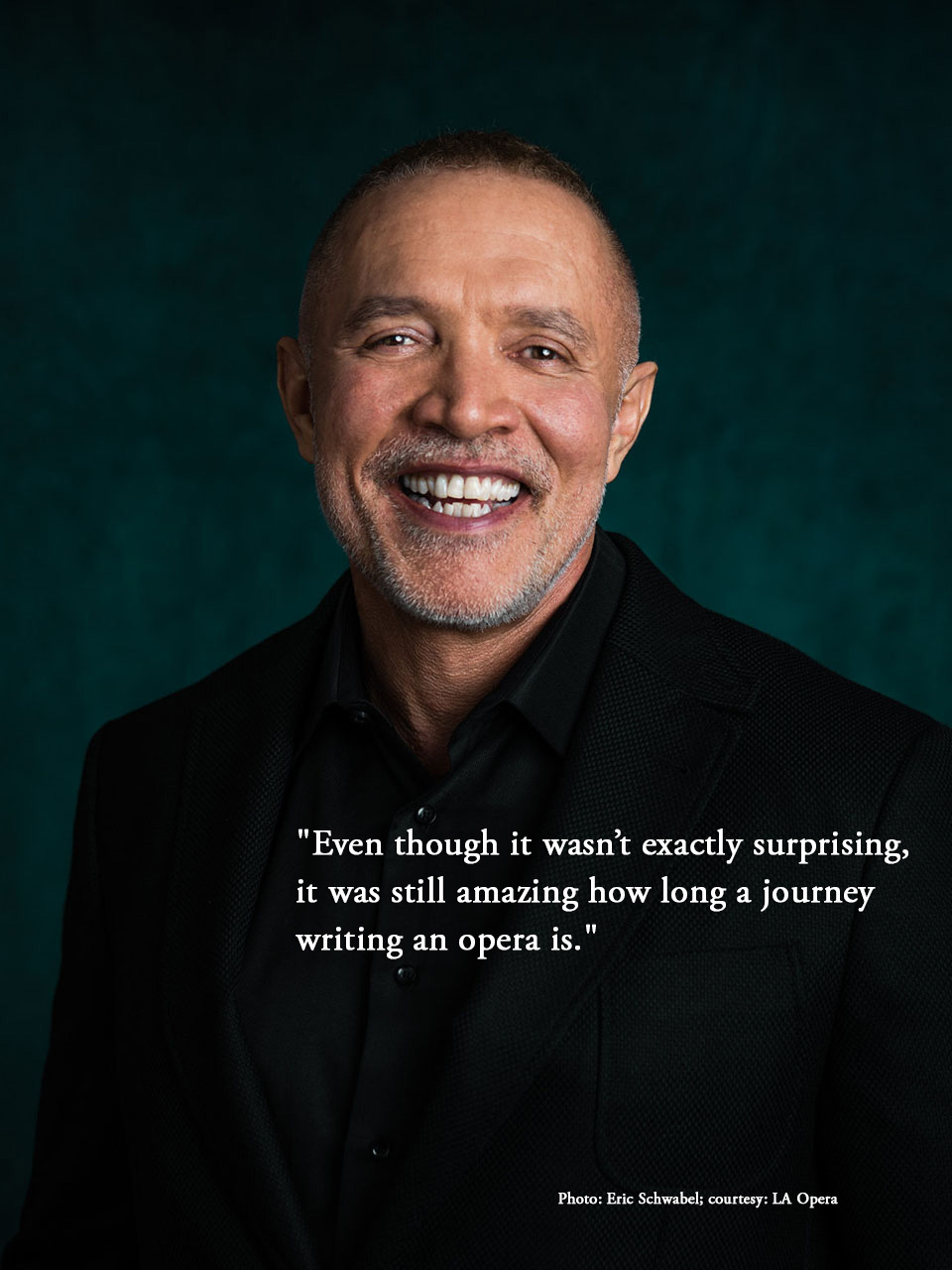Michael Abels: Co-Composer

Michael Abels is an award-winning and two-time Emmy-nominated composer of concert music, media and film, who often incorporates elements of traditional classical music, folk music, and bluegrass. His 1991 orchestral work Global Warming – commissioned and premiered by the Phoenix Youth Symphony – was inspired by the historic events of the end of the Cold War era and the collapse of the Berlin Wall; and has since become a celebrated work in the orchestral repertoire. Abels is also known for his genre-defying scores for Academy Award-winning director Jordan Peele films Get Out, Us, and NOPE – which was awarded a World Soundtrack Award, the Jerry Goldsmith Award, a Critics Choice nomination, and multiple critics awards. Abels is a co-founder of the Composers Diversity Collective, an advocacy group to increase visibility of composers of color in film, gaming, and streaming media. Omar is his first opera.
The interview below was conducted by his publisher Subito Music Corporation.
Subito: How did this commission come about?
Abels: SpoletoUSA approached Grammy-winning native Carolinan songwriter and trained opera singer Rhiannon Giddens about composing an opera on the life of Omar ibn Said. Rhiannon approached me about collaborating with her, and I jumped at the chance.
Subito: Had you previously known about Omar ibn Said and his autobiography? What did you think once you began discovering Omar’s story?
Abels: I had not known about Omar ibn Said prior to this project, and that lack of knowledge is part of the point. Omar’s story, like so many black contributions to American history, is not commonly known or taught. In learning the details we do have about Omar, I was struck by his perseverance, and reminded of the perseverance of all enslaved people.
Subito: Your opera Omar is a co-composition as well as a collaboration with Rhiannon Giddens. How did setting Rhiannon’s libretto — which is based on Omar’s writings — fit into your own compositional and orchestration processes as well as her own newly composed songs?
Abels: I think my approach to writing for the voice is similar to Rhiannon’s, so it was easy to write in a way that met her intentions. Once we had written enough of Omar to understand where it needed to be on the spectrum of traditional vs. experimental, and of folk music vs. concert music, then we had a clear path forward. My orchestral music has always been influenced by folk music, so that intersection was also familiar for me.
Subito: Are there aspects of the process that surprised you along the way as you worked on the opera?
Abels: Even though it wasn’t exactly surprising, it was still amazing how long a journey writing an opera is. It’s very challenging to sustain a very particular creative space over a period of years as the world and your life changes around it.
Subito: Because Omar Ibn Said is an actual historical figure in American history, is there a moment — or perhaps are there several moments — in Omar’s story that profoundly struck you?
Abels: Omar’s autobiography was written under the duress of enslavement, guided by the watchful eyes of captors who demanded he covert to Christianity. But Rhiannon has found the heart of his story in her libretto, so the opera Omar definitely has its share of unforgettable emotional moments, both devastating and inspiring. I can’t be more specific as that would spoil it!
Subito: What do you hope audience members and future listeners will learn and take away from the opera?
Abels: I hope audience members and future listeners are left in awe of the power of faith to transcend even the harshest circumstances, and of the artistry of the singers and musicians who bring Omar’s story to life.
